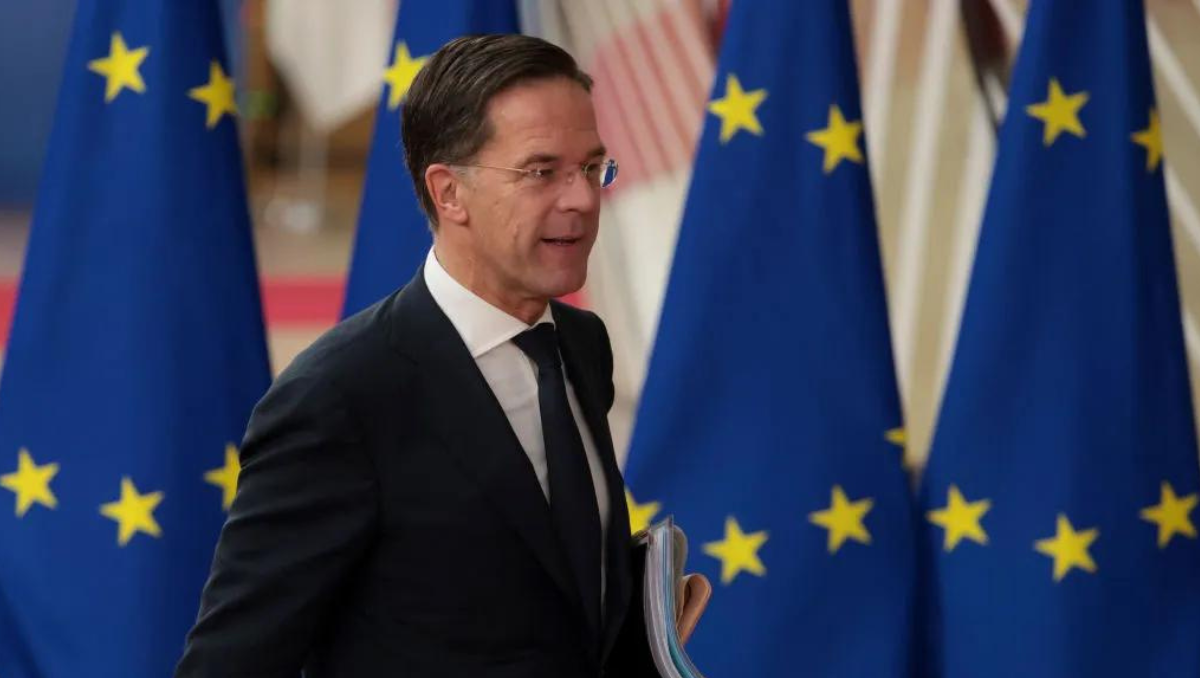After a protracted selection process, Dutch Prime Minister Mark Rutte has emerged as the frontrunner to assume the role of NATO Secretary-General. His ascension has become apparent after Hungary and Slovakia signalled their willingness to back his candidacy, leaving Romania as the sole holdout among the alliance’s 32 members.
Table of Contents
Stoltenberg’s Approval
Rutte’s path to the coveted position was paved by strategic concessions he made to allay the concerns of both countries. With this backing, Jens Stoltenberg, the incumbent Secretary-General, expressed confidence that Rutte’s appointment would be finalized imminently, hailing him as “a very strong candidate” and that “very soon, the alliance will have decided on my successor.” The Norwegian statesman, whose term has been extended multiple times since 2014, found his views shared by the US Secretary of State, Antony Blinken, who remarked that the anticipated appointment “will be good for all of us, for NATO and also for me.”
A Ukrainian Ally
After 14 years at the helm of the Netherlands, Mark Rutte’s anticipated departure from domestic politics coincides with his ascension to lead the NATO military alliance. The outgoing PM brings an unwavering commitment to Ukraine’s defense against Russian aggression. He has been instrumental in galvanizing European military assistance for Kyiv, urging allies to provide the necessary resources for Ukraine to secure a decisive victory on the battlefield. Under his leadership, the Netherlands has surpassed NATO’s 2% GDP defense spending benchmark, furnishing Ukraine with F-16 fighter jets, artillery, drones, and ammunition while bolstering its own military capabilities.
Rutte’s fervent advocacy stems from his condemnation of Russia’s actions, particularly the downing of Flight MH17 over eastern Ukraine in 2014, which claimed the lives of 196 Dutch nationals. His resolute stance against Putin’s regime and his conviction that Russia’s defeat is pivotal to securing European peace have solidified his credentials as a stalwart supporter of Ukraine and Ukrainian sovereignty.
Hungary Backs Rutte
Rutte’s candidacy gained weight when Hungarian Prime Minister Viktor Orbán, long viewed as the alliance’s most Russia-friendly member, pivoted behind him, after agreeing that no Hungarian personnel or funds would contribute to NATO’s activities in Ukraine – a quid pro quo concession that effectively shields Hungary from direct involvement while allowing the alliance’s broader efforts to proceed unimpeded. Orbán, who had initially harboured reservations about Rutte due to the Dutchman’s “problematic” stances, notably the notion of Hungary exiting the European Union, has now signalled his readiness to endorse his candidacy “in light of his pledge.”
Slovakia Backs Rutte
Similarly, after consultations between Slovak President Peter Pellegrini, Prime Minister Robert Fico and the Slovak government, the country indicated that they too would support Rutte’s candidacy. Pellegrini revealed that the Dutch leader had agreed during discussions to assist in protecting Slovakia’s airspace until the nation increases its own capabilities, a commitment that likely facilitated Slovakia’s backing of his bid to lead the alliance.
Romania and Estonia the Final Obstacles
The initial frontrunner for the NATO chief position, Estonian Prime Minister Kaja Kallas, was deemed too hawkish towards Russia by some Western member states, paving the way for the Dutch Prime Minister’s candidacy to gain traction. The final obstacle remains his last-standing rival candidate, Romania’s President Klaus Iohannis. Iohannis’ lack of backing anticipates his withdrawal from candidacy, paving the way for a pivotal transition in the alliance’s leadership as it navigates the complexities of Russia’s war in Ukraine.
Rutte’s prospective ascension presents formidable challenges – striking a delicate equilibrium between fortifying Ukraine’s resistance and averting a perilous escalation into open confrontation with Russia, while also contending with the resurgent voice of Donald Trump, whose scepticism towards the alliance’s relevance could potentially undermine unity and cohesion within NATO’s ranks.
